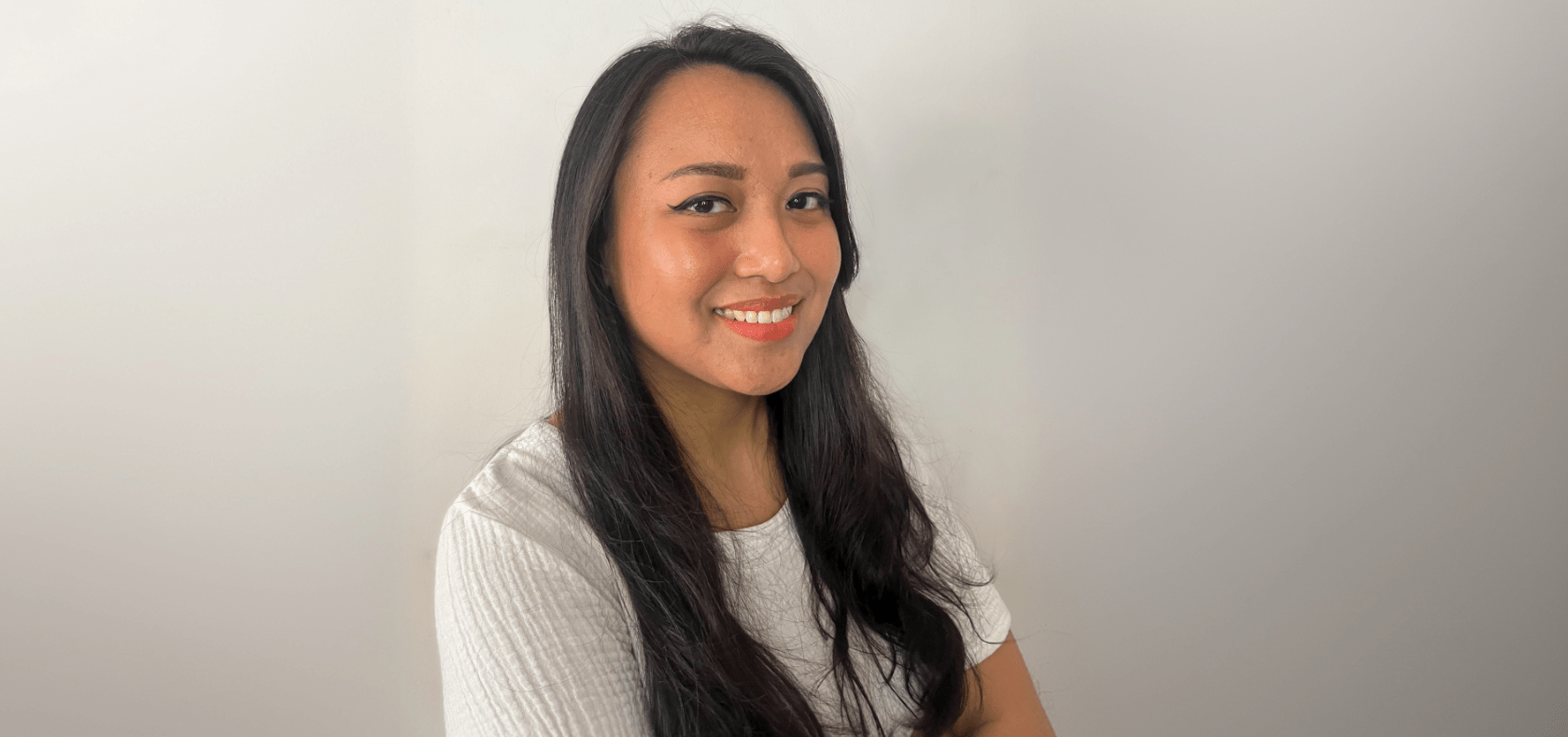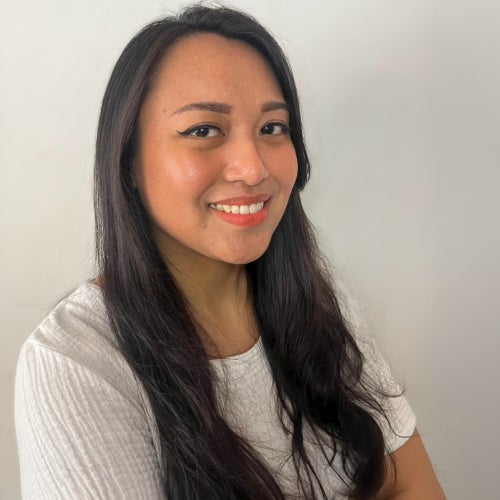Show you the data? Where is the money?
The role of data and funding in youth gender equality movements in Asia-Pacific
Date:
Author: Lauralyn (Laura)

I love making data-driven decisions because there’s nothing more frustrating than seeing an idea or a project fail due to a lack of data, funding or both. Looking at data, especially when visualised and paired with moving stories, helps people better understand what’s at stake, make informed decisions, and confidently take action towards positive change.
We often hear talk about the urgent need to accelerate progress for gender equality, but to be believed, we must prove what we already know with high-quality, reliable data. However, this requires much effort, so… where is the money?
Data and funding must work together to build power to support youth gender equality movements in the Global South, especially in Asia Pacific (APAC), home to 56% of the world's youth. Even though we are part of the Global Majority, APAC remains underfunded and under-researched.
Despite progress since adopting the Beijing Declaration and Platform for Action (BDPfA), significant gaps in data and funding persist.
Gaps in Data:
Vulnerable groups often lack adequate representation in national and regional statistics. Without high-quality, reliable, disaggregated data (broken down by gender, age, ethnicity, disability, SOGIESC, and other parts of our identity), governments, international organisations, women’s rights organisations (WROs), civil society organisations, donor agencies, and financial institutions will continue to overlook their specific needs and fail to design effective solutions.
Data privacy and security concerns add to these challenges. For example, a study on the health needs of youth with diverse SOGIESC might fail if participants don’t feel safe disclosing their identities, leading to underreporting and unreliable data.
Gaps in Funding:
A report[1] by The Association for Women’s Rights in Development (AWID) stated that the funding ecosystem for intersectional feminist organising is far from where it needs to be, especially in the Global South.[2] Much of the aid meant for the Global South (over 24 billion USD) stays in donor countries from the Global North.[3]
Who are we accelerating progress for, and in the process, who are we leaving behind? Only 1% of development aid and foundation grants directly reach WROs, especially those supporting intersecting forms of marginalisation, such as individuals with diverse SOGIESC, Indigenous communities, young feminists, and sex workers.[4] A survey[5] by FRIDA and AWID reported that over 91% of young feminists ranked the lack of financial resources as their top challenge. Outside the US, only 72 trans rights organisations across all other regions of the world received a combined total of $7 million USD.[6]
Donors often have strict criteria that small or grassroots organisations cannot meet. For example, we must usually be a registered non-governmental organisation (NGO). Those of us who have little choice but to live outside our passport countries cannot legally register in a resident country without surrendering leadership and support to locals. Several countries have laws restricting NGO formation and operation, often requiring complex registration processes, extensive documentation, and periodic renewals. Some authorities may unfairly reject registration applications or delay the process indefinitely, citing vague legal reasons. Furthermore, NGO registration in some countries poses security challenges where, at best, we face social stigma, ostracism, surveillance or office raids, and at worst, we face violence, attacks, criminalisation, unfair imprisonment, exile or death.[7]
If we are privileged to be registered, another hurdle will arise. Some countries impose restrictions on foreign funding, such as requiring prior approval for foreign donations. Even without that obstacle, funding is typically limited to organisations that have been established for years, with extensive documentation proving they meet the funding criteria. Often, with little administrative resources, time spent struggling to compile documentation means less time focused on our impactful work like direct advocacy and service delivery.
If we’re lucky enough to obtain funding, it’s often provided on a short-term, project-specific basis, making it difficult to plan, implement, and sustain long-term objectives and scale impact. Some governments may impose taxes on received funds, further limiting resources. We are forced to operate on shoestring budgets, compromising the quality and reach of our work.
Addressing structural and systemic issues does not happen overnight, and significant, measurable impact typically occurs in an NGO's growth phase, which lasts 3-7 years.[8] How can we remain operational when many funds only last a few months to a year?
To stay operational, we’re forced to make a decision over which initiatives to drop and which members to let go. A survey[9] by Oxfam reported a third of over 200 WROs across 38 countries had to lay off between 1-10 staff members, and 18 eventually closed.
Data and funding are the lifeblood of our work. They hold us accountable, help secure more resources, and allow us to run a marathon rather than a sprint to keep our promises to our beneficiaries.
If you’re attending Beijing+30, I hope you:
- Advocate for more high-quality, reliable, disaggregated data collection.
- Discuss robust measures to build better data privacy protections.
- Encourage simplifying funding applications and explore innovative funding solutions.
- Share best practices and resources for navigating regulatory environments.
Learn more about advocating for your work at Beijing+30 with 30 for 2030’s Beijing+30 Youth Advocacy Toolkit.
Biography:

Lauralyn, also known as Laura, is a perpetual migrant, survivor of sexual and workplace harassment, intersectional feminist activist, and member of 30 for 2030. With over 17 years of experience in a colourful assortment of roles, mainly in tech startups and brand agencies, she's worked with various non-profits and UN-led organisations since 2019 on mental health, gender-based violence, labour rights, and human rights. Follow her on:
 @justlauralyn |
@justlauralyn |  @justlauralyn |
@justlauralyn |  @justlauralyn |
@justlauralyn |  Lauralyn (Laura), and other platforms using her handle: justlauralyn
Lauralyn (Laura), and other platforms using her handle: justlauralyn
____________________
- [1] AWID. 2021. Where is the Money for Feminist Organizing? Data Snapshots and A Call to Action.
- [2] Staszewka, K., Dolker, T., and Miller, K. 2019. Only 1% of gender equality funding is going to women’s organizations – why? The Guardian.
- [3] Seery, Emma. 2020. 50 years of broken promises. UK: Oxfam International.
- [4] AWID. 2021. Where is the Money for Feminist Organizing? Data Snapshots and A Call to Action.
- [5] FRIDA, and AWID. 2016. Brave, Creative, Resilient: The Global State of Young Feminist Organizing.
- [6] Scamell, D. 2019. Funder Briefing: The State of Trans Funding. New York: Global Philanthropy Project, American Jewish World Service, Astraea Lesbian Foundation for Justice, and GATE.
- [7] UN. 2024. Special Rapporteur Tells Human Rights Council How Governments Have Implemented Restrictive Laws and Intense Stigmatising Campaigns to Silence Civic Activism
- [8] C. Seelos, J. Mair. 2020. Social Innovation: Specifying Pathways for Impact (Research Handbook of Responsible Management)
- [9] Oxfam International. 2021. Women rights organisations hit harder by funding cuts and left out of COVID-19 response and recovery efforts.